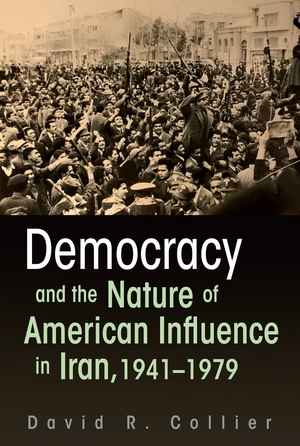"More books should have such a pedigree. . . . Seven polished studies that speak to each other. . . . The book [provides] a richly and tightly reasoned setting out of what might be dubbed the emerging scholarly synthesis: the British started it, but the United States took it over; Cold War concerns about ‘losing’ Iran were a greater factor than was oil nationalization."—Foreign Affairs
"Gasiorowski, the world’s foremost living authority on the conduct of the coup, provides a detailed and fascinating account of its various stages based on published materials and interviews with former CIA operatives."—International Journal of Middle East Studies
"The articles are meticulously researched and thick with detail. Moreover, many of them . . . use interviews to supplement the available written sources."—Middle East Journal
"A stellar array of talented scholars to examine this event on the basis of new scholarship. The tale is well told in its many parts, and the two coeditors do a masterful job in surveying the U.S. policy climate that made it possible and in providing an extraordinary blow-by-blow account of the coup itself. This is an exceptional collection dealing with a uniquely important event."—Gary Sick, former National Security Council staff member for Iran, currently Senior Research Scholar and Adjunct Professor, Columbia University
"A must read for anyone interested in Iran or in U.S. foreign policy. The authors convincingly explain the rise and fall of Prime Minister Mohammad Mosaddeq, who in the 1950s tried to regain control of Iran’s oil resources for national use and profit. . . . This book provides a more complete and up-to-date coverage of these and other questions than any other work and sheds vital new light on issues that remain crucial to the evolution of U.S.-Iran relations and to continuing questions about unilateralism and secrecy in U.S. foreign policy."—Nikki R. Keddie, author of Modern Iran: Roots and Results of Revolution
Description
Mohammad Mosaddeq is widely regarded as the leading champion of secular democracy and resistance to foreign domination in Iran’s modern history. Mosaddeq became prime minister of Iran in May 1951 and promptly nationalized its British-controlled oil industry, initiating a bitter confrontation between Iran and Britain that increasingly undermined Mosaddeq’s position. He was finally overthrown in August 1953 in a coup d’état organized and led by the U.S. Central Intelligence Agency, along with British intelligence. This coup initiated a twenty-five-year period of growing dictatorship in Iran, leaving many Iranians resentful of the U.S.—legacies that still haunt relations between the two countries today.
This book examines the turbulent political climate that prevailed in Iran during Mosaddeq’s tenure, the confrontation between Iran and Britain for control over Iran’s oil, the strategic considerations that led U.S. officials to intervene, and the details of the coup itself. Based on exhaustive research by leading academic experts in the field, this is the most authoritative account of the tragic events that led to the overthrow of Mosaddeq. With the recent declassification of CIA and other documents regarding the events of 1953 in Iran, there is an opportunity for
new in-depth analysis into not only the coup d’état itself but also the events that led up to it.
Table of Contents
1. Mosaddeq's Government in Iranian History: Arbitrary Rule, Democracy, and the 1953 Coup, Homa Katouzian
2. Unseating Mosaddeq: The Configuration and Role of Domestic Forces, Fakhreddin Azimi
3. The 1953 Coup in Iran and the Legacy of the Tudeh, Maziar Behrooz
4. Britain and the Overthrow of the Mosaddeq Government, Wm. Roger Louis
5. The International Boycott oflranian Oil and the Anti-Mosaddeq Coup of 1953, Mary Ann Heiss
6. The Road to Intervention: Factors Influencing US. Policy Toward Iran, 1945-1953, Malcolm Byrne
7. The 1953 Coup d'Etat Against Mosaddeq, Mark J. Gasiorowski
Conclusion: Why Did Mosaddeq Fall? Mark]. Gasiorowski
Notes
Selected Bibliography
Index
About the Author
Mark J. Gasiorowski, a professor in the Department of Political Science at Louisiana State University, is the author of U.S. Foreign Policy and the Shah and coeditor of Neither East nor West: Iran, the Soviet Union, and the United States.
Malcolm Byrne is deputy director and research director of the George Washington University-based National Security Archive, where he directs the U.S.-Iran relations project. He is the coeditor of The Iran-Contra Scandal: The Declassified History and The Chronology.
Related Interest
Series: Modern Intellectual and Political History of the Middle East
6.125 x 9.25, 384 pages, 15 black and white illustrations
August 2017




